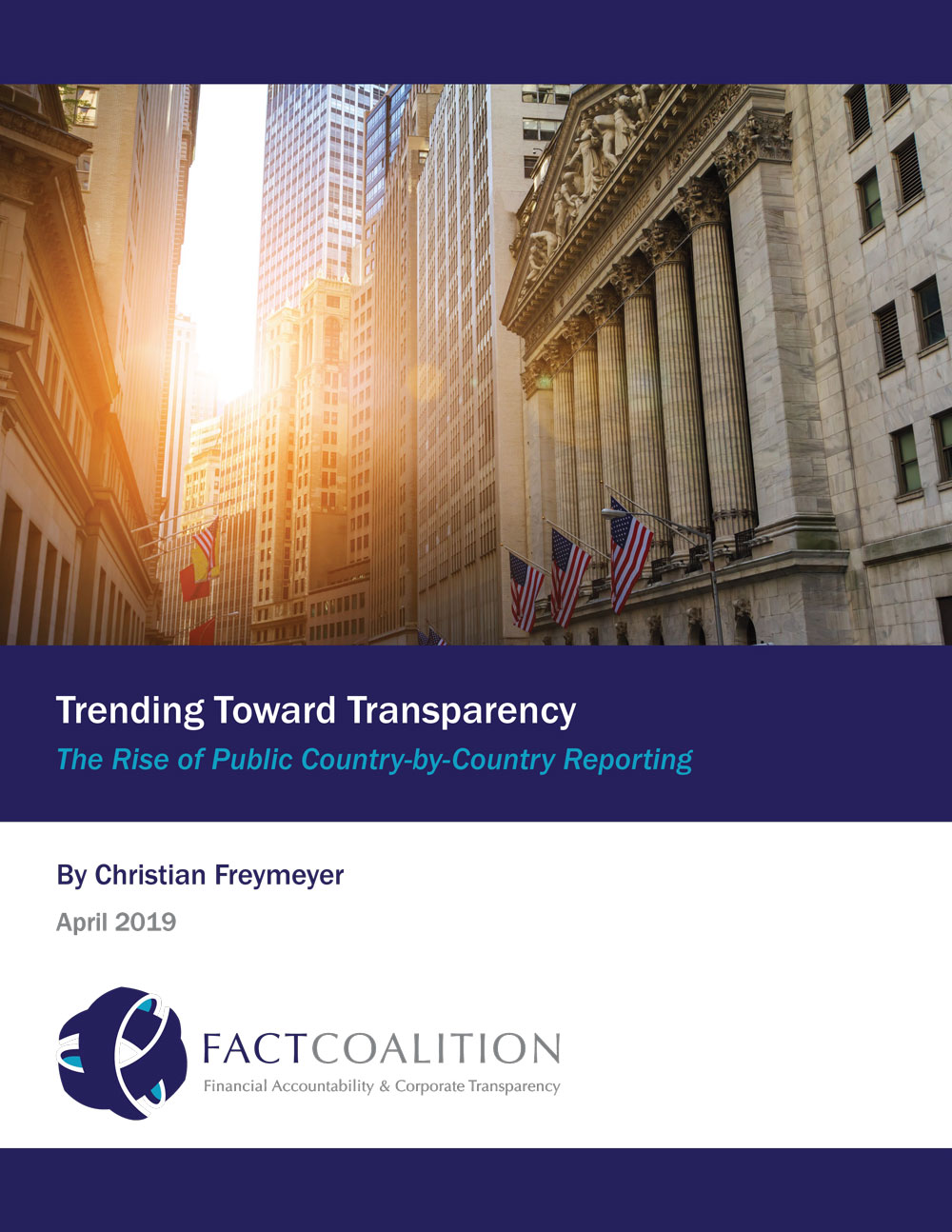The Rise of Public Country-by-Country Reporting
There is a growing chorus of individuals and organizations speaking out on the value of tax transparency and, in particular, the public country-by-country reporting (CBCR) of certain financial information for multinational companies, according to this April 2019 report published by the Financial Accountability and Corporate Transparency Coalition (FACT Coalition).
Titled “Trending Toward Transparency: The Rise of Public Country-by-Country Reporting,” the report highlights the growing support among various sectors of the investing, business, and policymaking communities as well as several enacted and proposed rules around the world to mandate increased disclosures.
Investors and Analysts
- The United Nations’ Principles for Responsible Investment, a network representing investors with more than US$70 trillion in assets under management, has called on companies to publish tax information on a country-by-country basis and to become more transparent on their overall approach to tax policy and how it interacts with their broader business and sustainability strategy.
- Norges Bank Investment Management, which manages the Norwegian sovereign wealth fund with US$915 billion in assets under management, has stated that “multinational enterprises should publish country-by-country breakdowns of how and where their business model generates economic value, where that value is taxed and the amount of tax paid.”
- The Certified Financial Analysts’ Institute, with 137,000 members in 150 countries, highlighted the importance of tax disclosures as a vital source of information for investors in comments to the Financial Standards Accounting Board.
- The Global Reporting Initiative, a standard-setting body that lists 75 percent of NASDAQ 250 companies and roughly 13,000 different entities as adhering to its reporting guidelines, recently proposed new tax transparency standards that include public CBCR.
Policymakers
- As of March 2019, the tax authorities of the United States and 77 countries collect and exchange country-by-country reports according to a standard set by the Organization for Economic Cooperation and Development (OECD).
- The EU Capital Requirements Directive IV (CRD IV), which was signed into law in 2013, requires large banks and other financial institutions within the European Economic Area to publicly disclose a variety of information on a country-by-country basis.
- The EU Accounting Directive, an industry-specific reporting guideline passed in 2013 and aimed at increasing transparency within designated sectors, calls for firms active in the extractive industries or logging of primary forests that meet specific firm-size thresholds to publicly report certain financial and tax information.
- The Canadian government enacted the Extractive Sector Transparency Measures Act (ESTMA), which brings Canadian companies in the oil, gas, and mineral sectors under CBCR-type requirements.
- The UK Parliament gave the UK’s tax agency, HM Revenue & Customs, the authority to compel multinationals to publish country-by-country reports, upon request.
- The European Parliament and European Commission have approved different versions of a proposal mandating public CBCR for large companies doing business in Europe; the Council of the European Union has yet to pronounce itself on the issue.
Businesses and CEOs
- In 2014, PwC conducted a survey of more than 1,300 CEOs around the world, and 59% stated that they believe multinational corporations should be required to disclose basic financial information, such as revenue, taxes paid, and number of employees on a country-by-country basis. And just one year later, a survey of the Financial Times Stock Exchange (FTSE) 100 conducted by the UK-based charity Christian Aid found little staunch opposition when asked about whether public CBCR should be implemented.
- Vodafone, Unilever, BHP Billiton, and Rio Tinto are among the multinational companies that publish, in varying degrees, country-by-country reports of tax and payment information.

